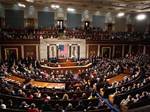

In our Year In Ideas package, Popular Science made ten predictions about what 2015 has in store for science and technology. One of them, it seems, may come to fruition very soon. A Food and Drug Administration panel has recommended approval for a generic version of a biologic drug. If the generic gets approved, this would be the first time a biosimilar would become available for U.S. markets.
Biologics differ from most other pharmaceutical drugs in that they made using living cells. Instead of using small, chemically produced molecules, biologics use large molecules. Unlike generic small-molecule drugs, large molecule generic substitutions cannot be identical to their branded counterpart, only similar. Most biologic drugs are used to treat autoimmune diseases, such as arthritis, and cancer, and their costs are high.
In this case, the drug in question, EP2006, is aiming to become a less costly alternative to Neupogen, which helps cancer patients fight off infection during chemotherapy.
Express Scripts, a leading prescription drug plan manager, is strongly in favor of biosimilars. In December 2014, the company estimated that if EP2006 were approved, patients would save $5.7 billion over the next 10 years. Overall, there are 11 potential biosimilars seeking FDA approval: If all get approved, Express Scripts estimates patients could save $250 billion over the next decade.
The panel's decision puts biosimilar competition one step closer to U.S. markets. The FDA doesn't necessarily have to follow the recommendation, but generally, a positive panel recommendation bodes well for an FDA confirmation. The agency is expected to make its decision on the topic this year.

EDITOR'S PICKS











